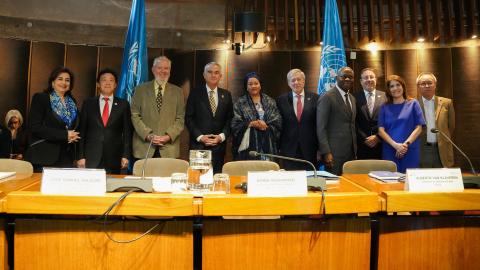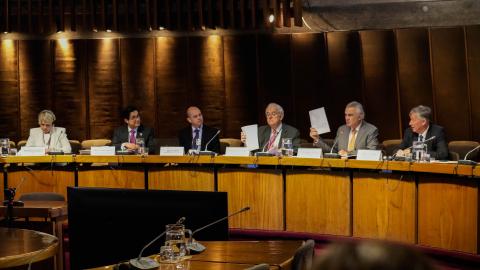The side event, co-organized by the Economic Commission of Latin America and the Caribbean and the Governments of Colombia and Chile, will discuss from a Middle Income Country (MICs) and Small Island Developing States (SIDS) perspective the challenges Latin America and Caribbean countries face to foster the mobilization of domestic resources and the need to promote international cooperation on fiscal, financial and trade matters.
Domestic resource mobilization is at the core of the strategy to finance the post -2015 development agenda. However for Latin American and Caribbean countries effective mobilization is constrained by domestic and international factors.
At the domestic level, tax reforms made in the region in the past two decades have increased the tax burden and shifted fiscal policy towards improving redistribution. However, the domestic mobilization of resources is curtailed by a tax structure that is insufficiently progressive, a limited tax base due partly to tax evasion and avoidance, the specific characteristics of the Latin American and Caribbean business cycle, low levels of development, and the insufficient depth of the region’s domestic financial markets.
In the specific case of Caribbean SIDS, structural factors have helped to elevate their national debt, such as the declining performance of the export sector, partly due to a decline in competitiveness and a slowdown in economic activity related to tourism. They have also accumulated debt as a consequence of increased expenditures to address the impact of extreme events. However, the debt structure of the Caribbean is heterogeneous with some countries having relatively higher levels of multilateral and bilateral concessional debt which makes a broad debt reduction agenda difficult unless individual country characteristics are also recognised.
Besides domestic resource mobilization issues, the region’s governments are facing new challenges internationally including combating illicit flows and capital flight and the existence of tax havens. Another important limiting factor is the existing asymmetries in both the international financial architecture and the trade system. To address these asymmetries, the international financial architecture has to reflect the shift that has taken place in global economic and political power towards emerging economies and MICs and deliver stability as a global public good. Also, the trade system must provide MICs and SIDS with the opportunities to increase their share in global trade, access to global markets and value chains, receive technology transfer and acquire knowledge.
At the core of the debate on domestic resources mobilization is also the role of private flows in financing for development. Public resources must be complemented by private flows. A key challenge within this context is to channel private capital towards production development in an effective manner. This involves public-private cooperation and blending public and private resources to achieve the leverage required to maximize the impact of development financing.
Domestic resource mobilization should not be only equated with fiscal resource mobilization but also include the key role played by development banks in financing sustainable development. Indeed, subregional and national development banks have played a crucial role in channeling resources to the production sector, including to Small and Medium Enterprises.
Overcoming the challenges facing domestic resource mobilization also requires international cooperation in fiscal matters. International and regional agreements should be the basis for common international rules and standards to improve tax transparency and prevent the erosion of tax bases and competition among countries to reduces taxes to attract investors, and promote more development friendly financial and trade systems. Finally, any debt relief efforts for the Caribbean SIDS require innovative solutions that are intended to allow these countries the fiscal space to tackle the challenges posed by the new sustainable development agenda.


